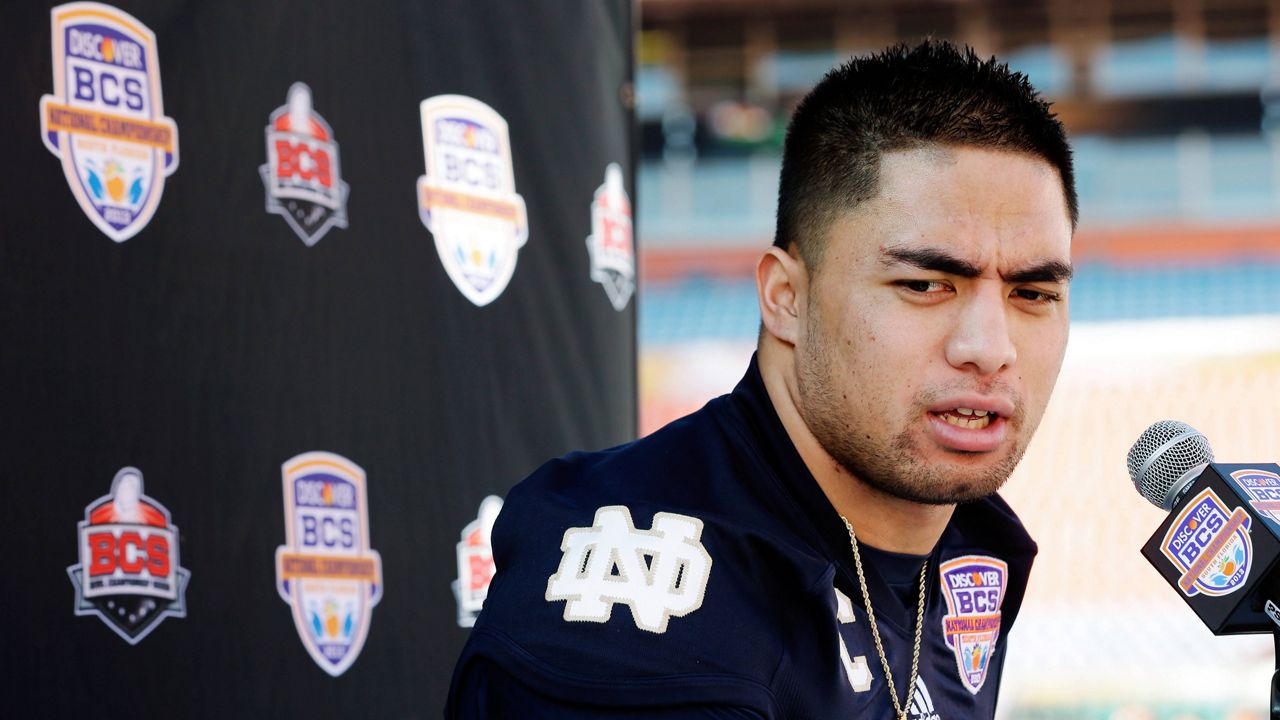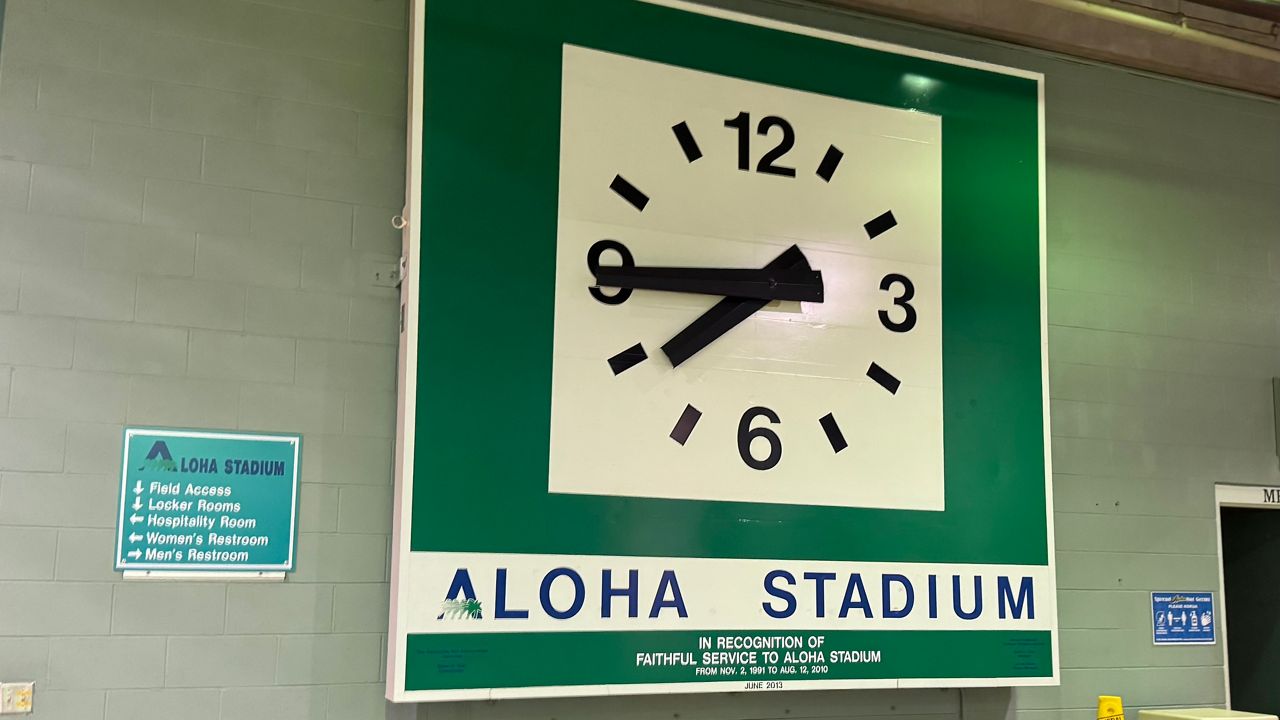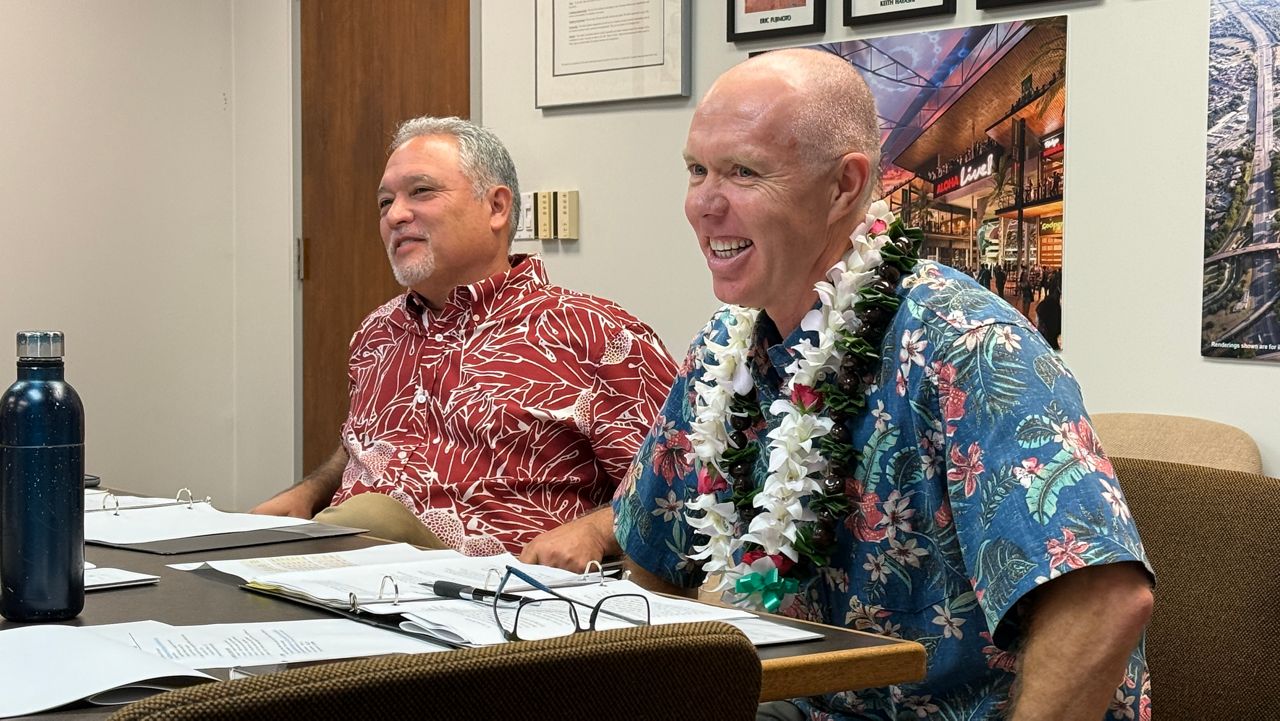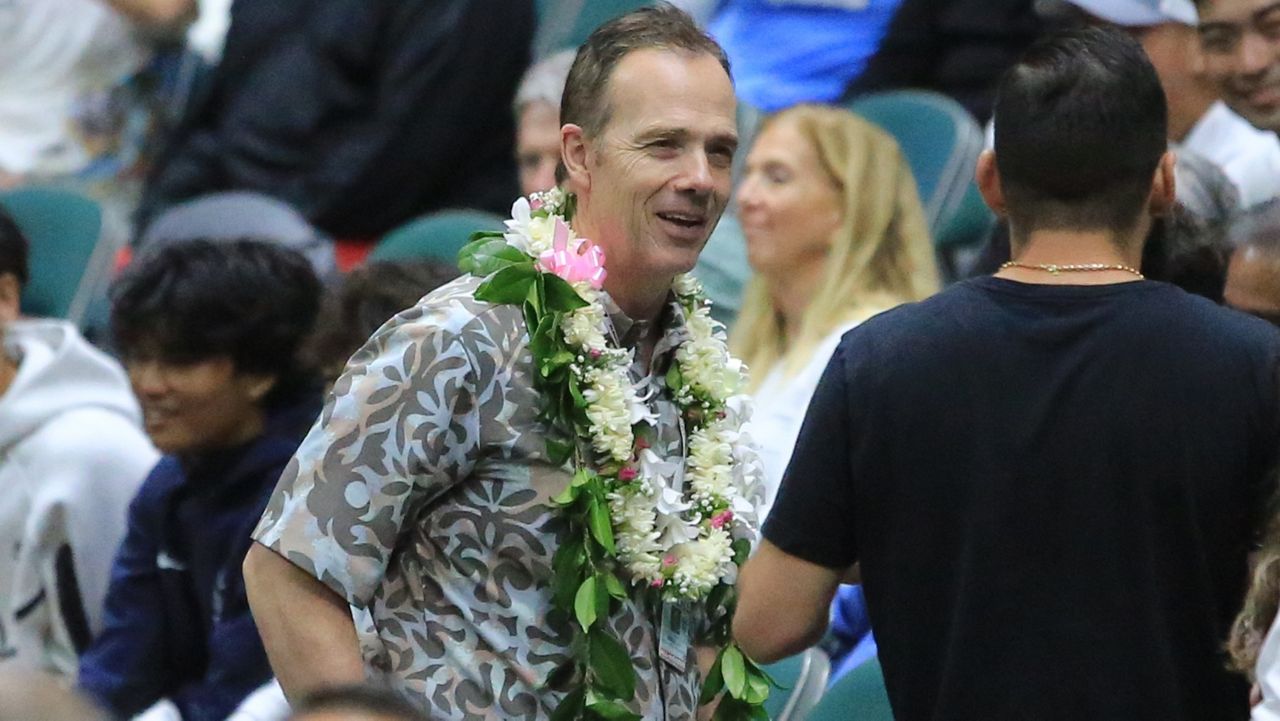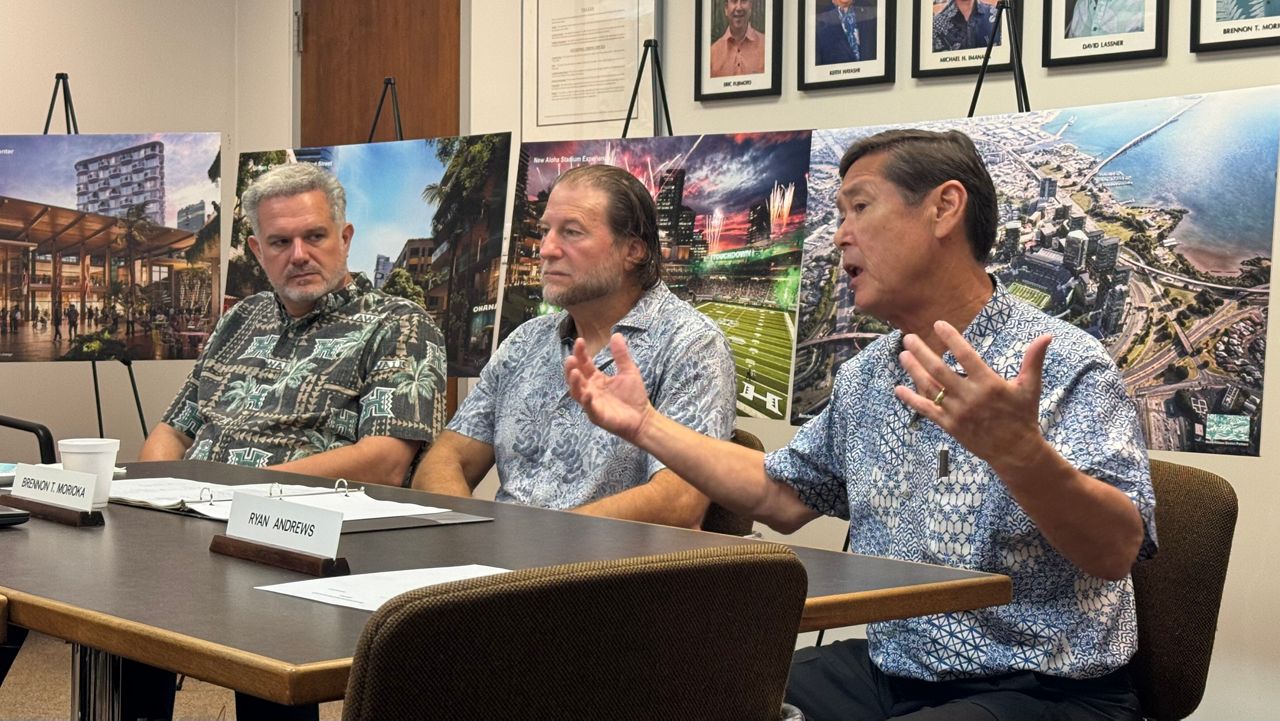HONOLULU — A new two-part Netflix documentary takes a fresh look at Hawaii native Manti Te'o and the infamous catfishing hoax that ensnared the former college football star a decade ago.
“Untold: The Girlfriend Who Didn’t Exist” is a roughly two-hour-total documentary that examines the story and aftermath of the Punahou School graduate’s early 2010s rise as a Notre Dame linebacker, fan favorite and Heisman Trophy finalist while he was simultaneously hooked into a long-distance relationship with a fictional woman, Lennay Kekua.
The person behind the Kekua persona, the former Ronaiah Tuiasosopo, is now a transgender woman, Naya Tuiasosopo, and receives roughly equal interview time in the documentary as Te‘o himself as they described their viewpoints of the out-of-control ruse that stunned people nationwide in Jan. 2013.
Te'o, now 31, reveals in the documentary that the incident and ensuing public ridicule haunted him for years as he tried to make it as an NFL player.
“Every day was (about) just trying to figure out how to get rid of this anxiety, this numbness, this tingling,” he says. “I’m trying to figure out all these ways to reprogram myself.”
Part I deals with Te'o’s emergence as a five-star recruit from the North Shore of Oahu who grew into a nationally recognized defensive playmaker; his role in the revival of a struggling Notre Dame football program; and the considerable hype and buildup to the national championship game that surrounded him in his senior year of 2012. Te'o and Tuiasosopo recount, from opposite sides, the backstory to that season — Te'o being duped into a relationship through phone calls and messages, then, in a surreal sequence, him playing football through the tragedy of his grandmother’s death, followed by, supposedly, that of his girlfriend mere hours later.
Part II encompasses the fall of player suddenly unsure of himself and the people around him. Te'o describes becoming aware of the hoax just before the national championship game against Alabama, a 42-14 blowout loss on Jan. 7, 2013, in which Te'o was unfocused. Days later, two reporters at the online sports publication Deadspin, who speak in the documentary, exposed the purported girlfriend story that the national media had run with as a myth. The revelation, and hordes of media, followed Te'o to the NFL Draft Combine and permeated his daily life.
Te'o’s draft stock dropped as a result, and he went in the second round, No. 38 overall, to the San Diego Chargers. He played four seasons with the Chargers, three with the New Orleans Saints and was last active with the Chicago Bears in 2020.
Because of the incident, he says he lost the boundless confidence he had as a player at Notre Dame.
“When I’m on the football field, I feel like nobody can beat me, and I played free and I played fast and I played physical. And that’s what made me great,” Te'o says. “Now I go to the NFL, and I’m questioning everything.”
At the insistence of others, he eventually went to therapy, which helped him, he says.
In the end, Te'o, who is now married and has a daughter, expresses self-awareness of how he is viewed, and even offers forgiveness for Tuiasosopo, who was interviewed separately and frequently expresses remorse as she recounts her actions in the film.
The island of Oahu receives plenty of screen time, especially Te'o’s hometown of Laie. Interviewees also featured in the documentary are Te'o’s parents, Brian and Ottilia, and Te'o’s best friend at Punahou and Notre Dame, wide receiver Robby Toma. A handful of current and former Hawaii media personalities appear in old footage.
Brian McInnis covers the state’s sports scene for Spectrum News Hawaii.





